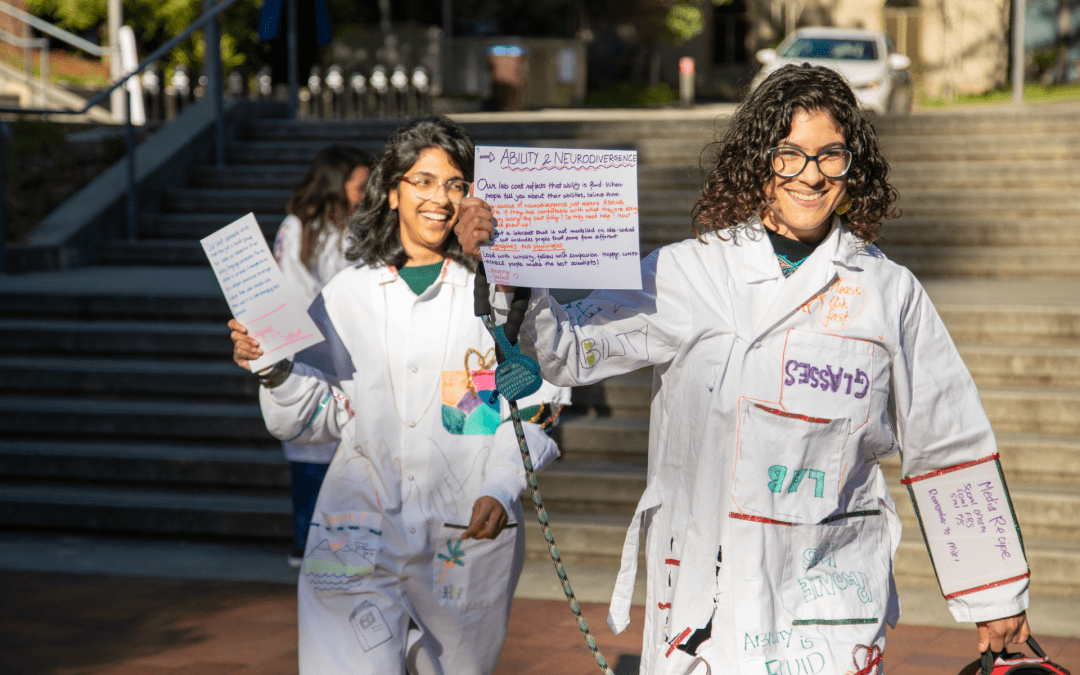If you asked a group of people to draw you a picture of a scientist, there is one feature that almost everyone would include- a white lab coat. On April 5, the Genomics Institute Diversity, Equity and Inclusion Committee held an engrossing half-day symposium during which they explored this prominent visual symbol of science and “reclaimed” it for the diverse group of individuals that it represents.
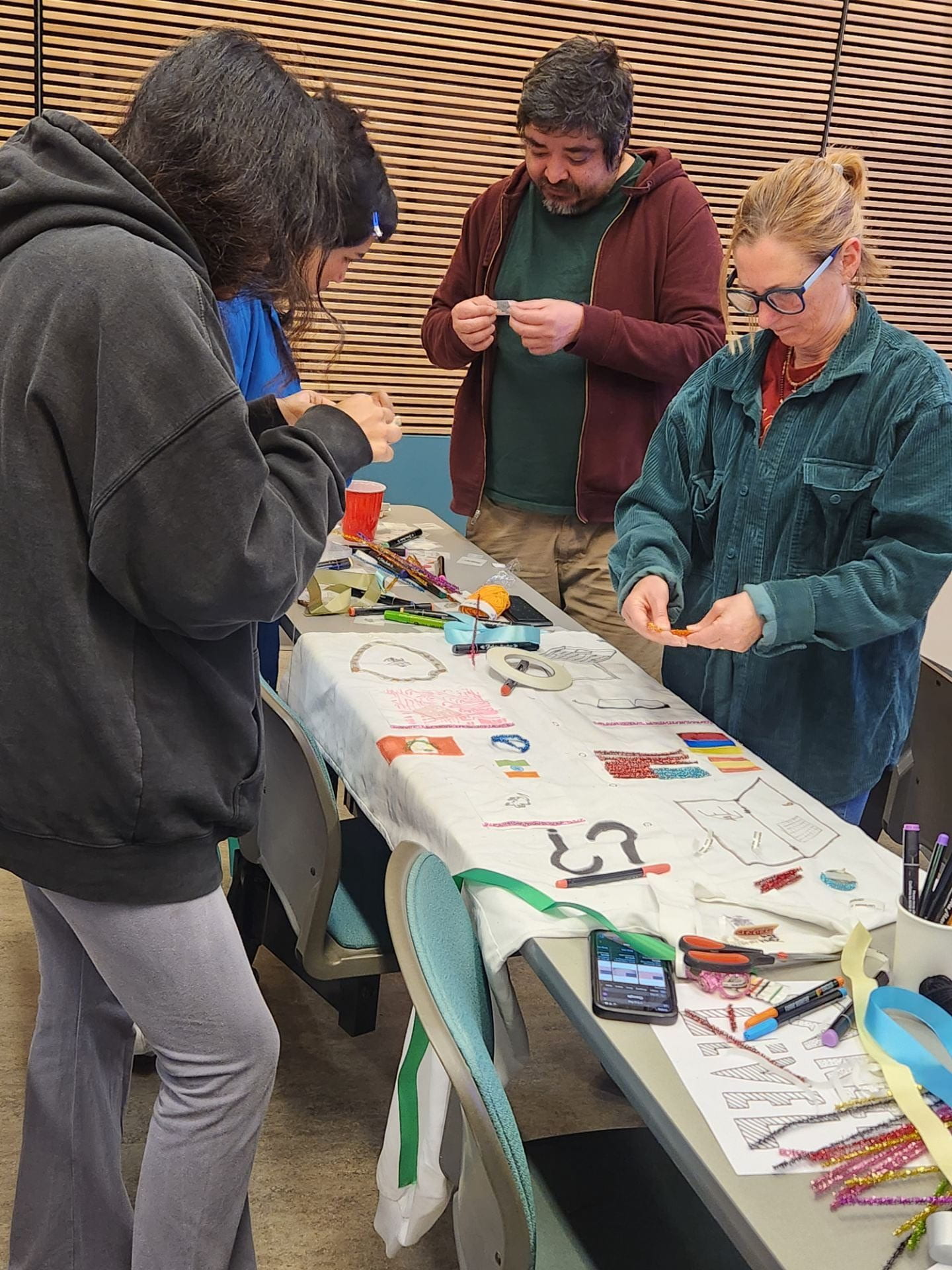 In the first workshop of the symposium, students, faculty, and staff from different departments across UC Santa Cruz joined together to reflect on the intersectionalities of social justice that impact their being in science, and visually translate them using actual lab coats as a canvas. Each lab coat was assigned a theme, and participants were able to break into groups based on which theme they wished to work on. Out of a dozen themes, they chose to decorate coats for gender, ability and neurodivergence, culture, ethnicity, career stage, and immigration status. Through decorating the coats, teams were able to make visible the often invisible stories of what individual scientists bring to the bench. Each group also came up with a quote for their theme, and one team even wrote a poem.
In the first workshop of the symposium, students, faculty, and staff from different departments across UC Santa Cruz joined together to reflect on the intersectionalities of social justice that impact their being in science, and visually translate them using actual lab coats as a canvas. Each lab coat was assigned a theme, and participants were able to break into groups based on which theme they wished to work on. Out of a dozen themes, they chose to decorate coats for gender, ability and neurodivergence, culture, ethnicity, career stage, and immigration status. Through decorating the coats, teams were able to make visible the often invisible stories of what individual scientists bring to the bench. Each group also came up with a quote for their theme, and one team even wrote a poem.
The workshop was led by UCSC Genomics Institute Assistant Researcher Ann Mc Cartney and her colleague on the Earth Biogenome Project, Rockefeller University Senior Research Associate Sadye Páez, with the goal of fostering inclusive dialogue among participants that could lead to meaningful change. Working on decorating the lab coats together provided a thought-provoking analysis of social justice initiatives, and within their small groups, participants were able to share their individual experiences.
“There was a sense of belonging and understanding immediately,” said Krizia Chambers, a UCSC graduate student and one of the facilitators who participated in the activity.
After the workshop, Mc Cartney and Páez engaged UCSC Assistant Professor Karen Miga and UCSC Project Scientist Merly Escalona in a fireside chat titled “Spilling the T2T.” They both spoke about their own backgrounds that lead them to science, and some of the biases, racism, and/or institutional barriers that they encountered as a Venezuelan woman in science (Escalona) and a woman and mother in bioinformatics (Miga).
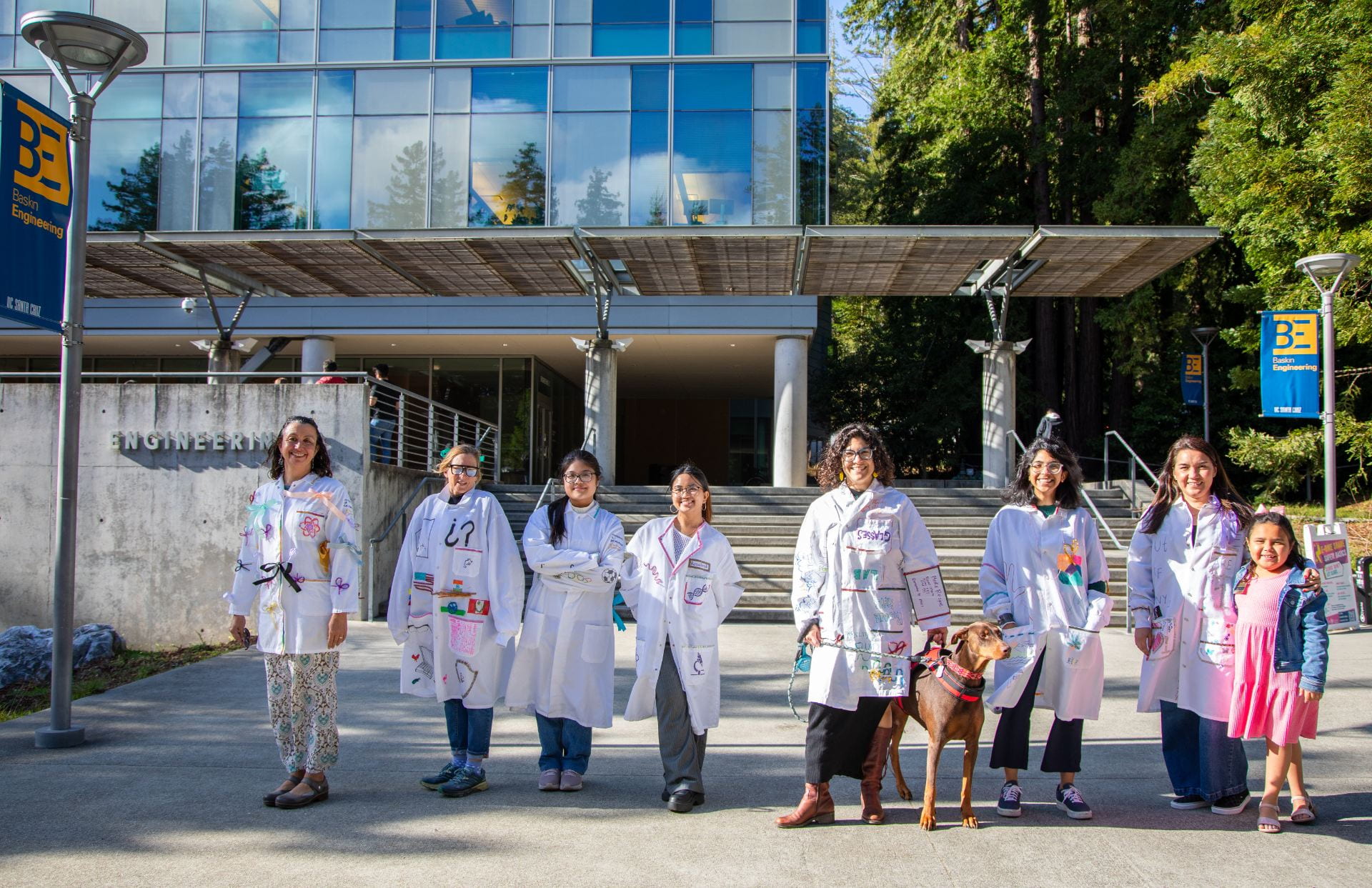
Miga is a leader on two large consortium efforts around human genome sequencing, the Telomere to Telomere (T2T) completion of a human genome and the Human Pangenome Reference Project, while Escalona works as a reference genome assembler on the UC-wide California Conservation Genomics Project. They spoke to some of the challenges of incorporating different viewpoints and needs that these large consortium projects necessitate, and the progress that they have been able to make as more researchers are engaging in thinking about ways that we adjust methods and procedures in ways that would allow more groups to participate.
Miga ended on an encouraging note, praising UC Santa Cruz’s commitment to social justice that has made it a good place to think about these issues as we continue to lead genomics projects, and hoping that it can continue to improve.
“We could establish a department that is unlike any other if we could in fact embrace that the modern geneticist and modern genomicist wears a different lab coat,” said Miga in her closing remarks. “We need to start bringing in context to bioethics and social justice programs and have the graduates that come from our program demonstrate that they have that new level of expectation. And it’s not only because it is the right thing to do, but I think it’s an advantage anywhere that student or postdoc goes next… having that type of education not be so STEM focused or only being humanities focused but having a blending of both creates a better human… I think that has really been a beautiful light in the Genomics Institute branching off on to other aspects through campus too.”
The last talk of the symposium was given by Alice Popejoy, an assistant professor of public health sciences at the UC Davis School of Medicine. Popejoy is part of a team of researchers investigating the ethical, legal, and social implications (often referred to as ELSI) of genomics research for the Human Pangenome Reference Project. She gave an overview of some of the historical ways that STEM fields have been discriminatory against various populations, and the current challenges with genomics studies, particularly when it comes to how these studies often categorize people based on census population descriptors that don’t have a genetic basis. Popejoy made a strong point that genomics as a field “is still failing in diversity,” with only 19% of genome-wide studies being conducted on populations outside of European ancestry, and ended her talk by advocating for the need for more community-driven and engaged research.
Popejoy’s talk was attended by over 200 people, including students of Karen Miga’s BME80G course, “Bioethics in the 21st Century.” After the talk, the audience filed out to enjoy a reception with a DJ, poster session, and a runway fashion show in which representatives for each of the groups from the lab coat workshop modeled their decorated lab coat, representing the themes explored throughout the symposium.
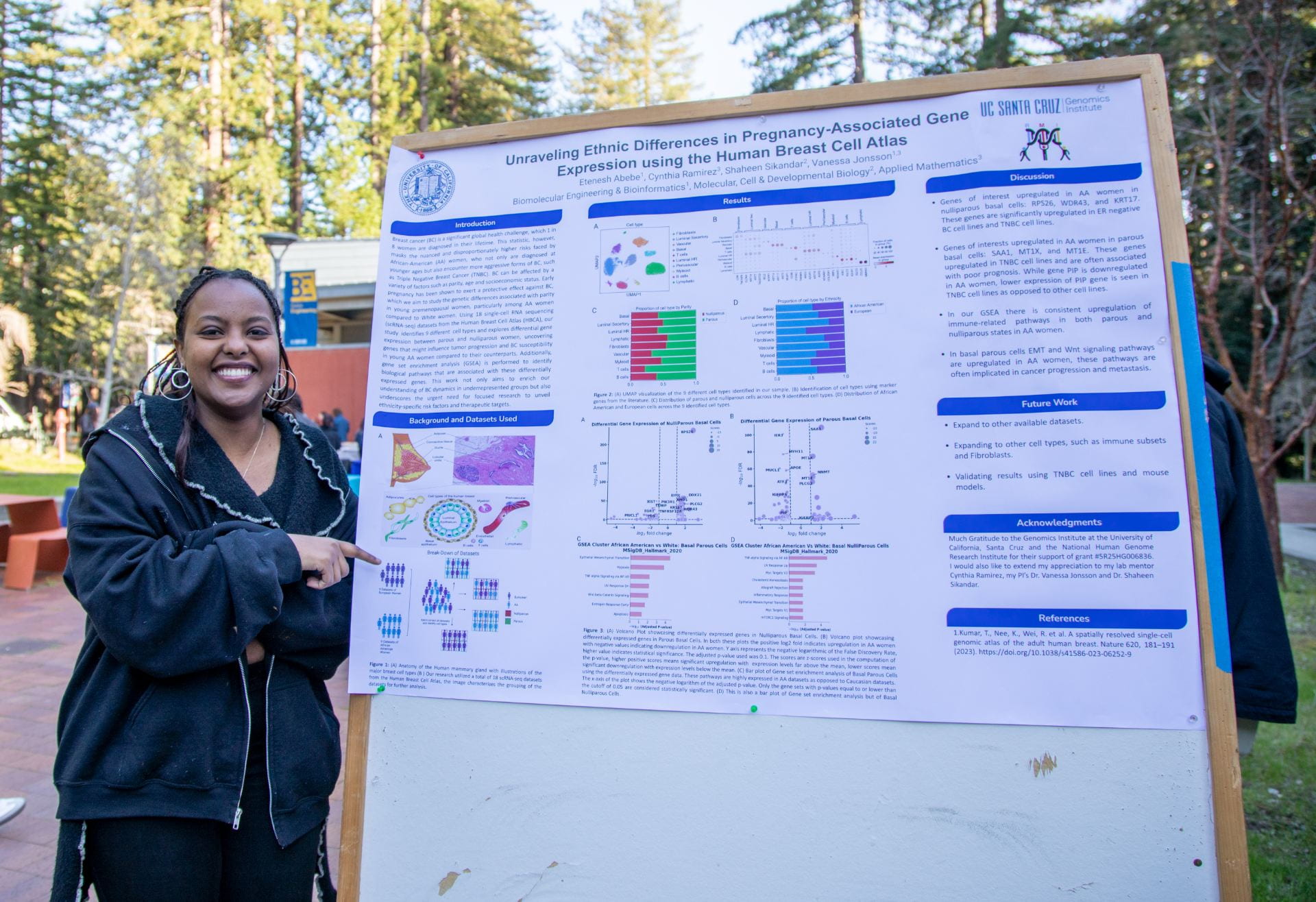
There were many thought-provoking presentations during the poster session, which had participants from undergraduates, graduate students, student groups, and staff from several different departments. Undergraduate Etenesh Abebe gave a particularly impressive presentation and won the $75 prize in the poster competition for her poster “Unraveling Ethnic Disparities in Pregnancy-Associated Gene Expression using the Human Breast Cell Atlas.”
Overall, the symposium provided an excellent catalyst to considering issues of justice in STEM that often get overlooked. We encourage any member of the UCSC community who is interested in considering these issues further to attend Karen Miga’s “Bioethics in the 21st Century” lectures, which will continue through June 7, 2024.
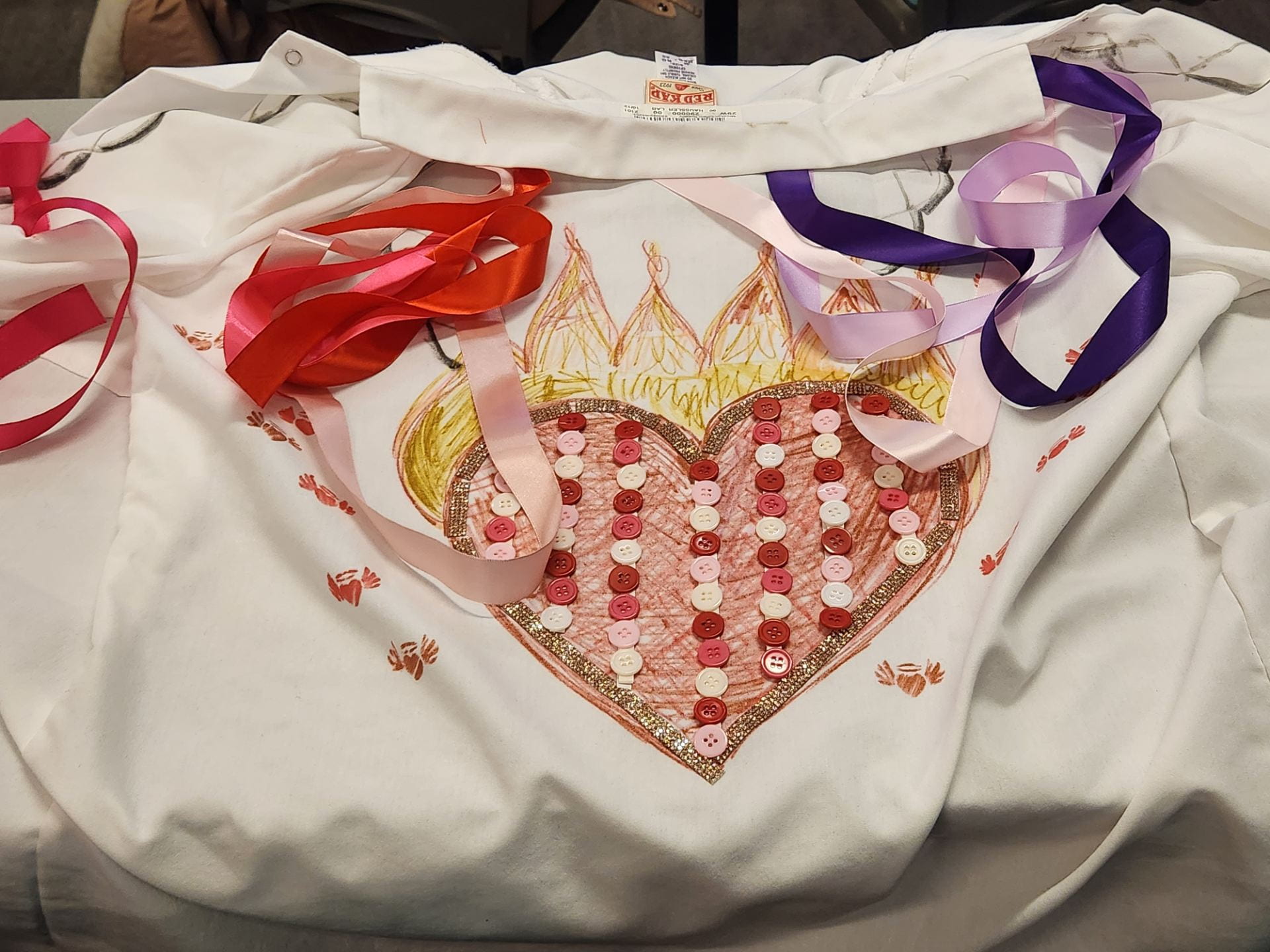
This event was planned by the Genomics Institute’s Diversity, Equity, and Inclusion Committee with generous financial support from the Genomics Institute, Baskin Engineering, UC Santa Cruz QB3, UC Santa Cruz Office of Diversity, UC Santa Cruz STEM Diversity, and the UC Santa Cruz Leading the Change Initiative.
